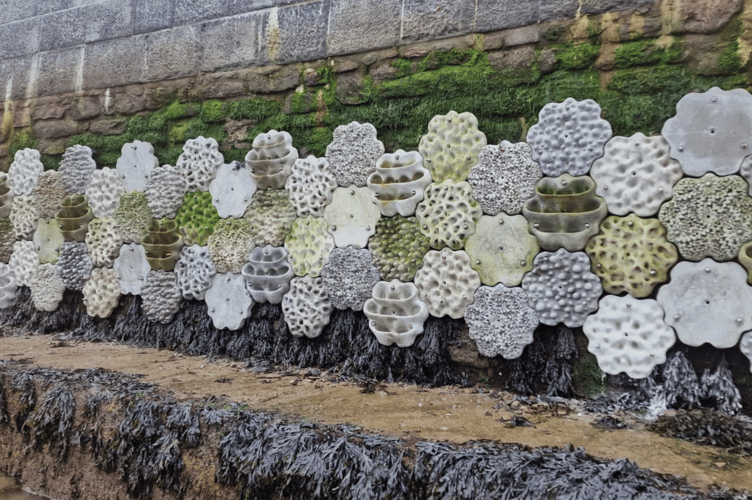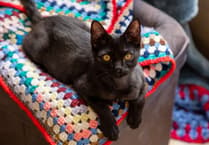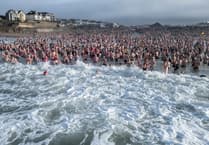IN a bid to transform the surfaces of harbours across Cornwall, 3D tiles are being installed which will see flat areas raised to become a rocky sanctuary for sea creatures.
More than 150 hexagonal tiles with textured designs have already been introduced in Falmouth, Plymouth and Mevagissey, with plans for further installs in Newquay, Padstow and Port Isaac.
These tiles are attached to flat, manmade walls–such as harbours, piers and sea defences–to enhance the habitat for marine life.

They are a relatively new concept in the UK and have been inspired by those in Australia called Living Sea Walls.
Research in Australia has shown that after one year, Living Seawalls already support at least 36 per cent more species than plain, unmodified seawalls. As many as 85 species of invertebrates, seaweeds and fish live and grow on the panels.
Tina Robinson, the founder of Our Only World, the Cornish environmental charity behind the project, said: “Harbour walls are already turning into a carpet of green.
“These tiles, with all their little nooks and crannies, indentations and increased surface area, create a rocky pool environment. The idea is to kickstart the bottom of the food chain: from seaweeds, sea snails, cushion stars, anemones, sea squirts, periwinkles and limpets.
“In the UK, we have a few tile suppliers using environmentally friendly solutions for the marine industry.
“Arc Marine tiles are made in Truro, recycling the waste products from local granite and quarrying industries.”

Thirty tiles were attached to the east wall of Falmouth Harbour by Church Street car park in October in a collaboration with Falmouth Harbour and Falmouth Town Council.
Falmouth Harbour’s environment manager Vicki Spooner said: “This is such an exciting project as we thoroughly expect the sea wall to go from a fairly barren expanse to a complex area hosting a greater variety of species.
“This gives us a great opportunity to work with local schools, colleges and universities to monitor the colonisation of these structures and develop survey skills.”
Husband and wife, Mark and Tina Robinson, founded Our Only World in 2018, to inspire younger generations, such as their grandchildren, to protect the marine environment.
Living sea walls are one of their projects, along with water refill stations and a children’s book and charity music single.
Tina said: “There are 400 non cargo harbours in the UK. There's no reason why we couldn’t put them all over the UK, and really make a difference.”
“Our Only World hopes that ‘greening the grey’ will catch on across Cornwall—and beyond.”
Plymouth University has helped research, fund and support the install of tiles in the South West of England.

-Liam-Westpfel-(Man-Down).jpg?width=209&height=140&crop=209:145,smart&quality=75)



Comments
This article has no comments yet. Be the first to leave a comment.